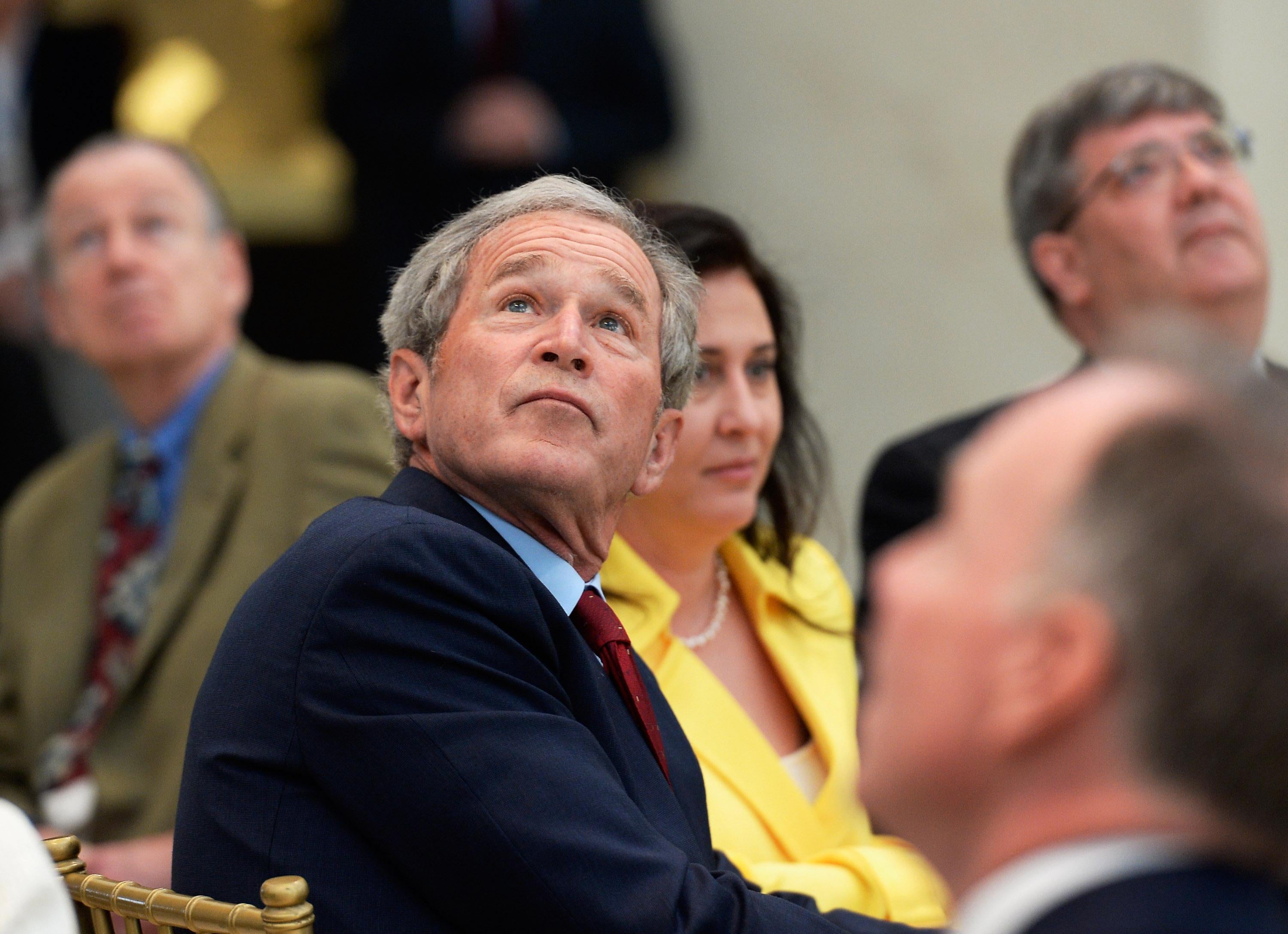As most of us recall, George W. Bush was president of the United States during the crucial year of 2008 when the economy slid into recession and a series of panics and runs gripped the shadow banking system. As we also recall, Bush did not play a significant public-facing role in the response. Presidential candidates Barack Obama and John McCain said a lot, Federal Reserve Chairman Ben Bernanke was visible, America got to know the previously obscure figure of New York Fed President Timothy Geithner, and Treasury Secretary Hank Paulson was frequently on television. But Bush was president, and one assumes he was doing something. But what, exactly?
I’m curious, and Keith Hennessey who was there at the time got asked the question by someone else who’s curious:
I teach a class at Stanford Business School titled “Financial Crises in the U.S. and Europe.” During one class session while explaining the events of September 2008, I kept referring to the efforts of the threesome of Hank Paulson, Ben Bernanke, and Tim Geithner, who were joined at the hip in dealing with firm-specific problems as they arose.
One of my students asked “How involved was President Bush with what was going on?” I smiled and responded, “What you really mean is, ‘Was President Bush smart enough to understand what was going on,’ right?”
The class went dead silent. Everyone knew that this was the true meaning of the question. Kudos to that student for asking the hard question and for framing it so politely. I had stripped away that decorum and exposed the raw nerve.
What follows is, in lieu of an actual answer to the question, a thought-provoking rant about Hennessey’s view that Bush is an extremely intelligent man who’s been victimized by unfair stereotyping of Texans. I have some doubts about this theory (starting with the observation that unlike my extremely smart wife, Bush is from Connecticut rather than Texas), but I actually think it’s a different question. Presidents have finite time and have to make decisions about how to allocate it. My impression is that Obama was less personally involved with day-to-day conduct of military operations in Iraq and Afghanistan in 2009 than Bush was in 2008, and that Obama was more personally involved in the day-to-day of the financial crisis response in 2009 than Bush was in 2008. But my impression might be wrong. The fact is, I don’t know. One way or another this isn’t a question of intellect, it’s a question of schedule management.
The image I have in my head is of Bush largely delegating his administration’s response to the financial crisis to Paulson, while immersing himself in videoconferences with generals and fairly frequent discussions with Hamid Karzai. If that’s wrong, it’d be nice for Hennessey to actually say that it’s wrong and correct the record rather than acting so defensive about it. After all, if Bush was deeply involved in the decision-making, I think it’s fair to say that making a conscious choice to appear to recede into the background was itself pretty smart. He was, at the time, a very unpopular figure and publicly associating himself with new unpopular initiatives such as TARP or nationalizing Fannie Mae and Freddie Mac could have further poisoned the waters.
